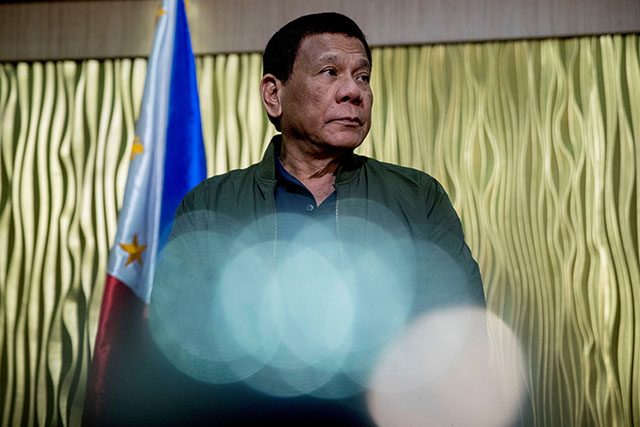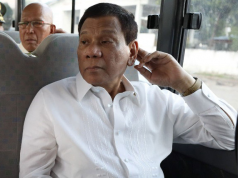
KUALA LUMPUR — Philippine President Rodrigo Duterte was on Tuesday accused of being the “most brazen violator” of a new law he approved that would penalize a wide range of sexual harassment, from catcalling to wolf-whistling.
The 74-year-old president’s controversial remarks about women include numerous jokes about rape and have incensed women’s rights activists, but have not dented his popular support at home.
On Monday, Duterte’s government released details of a law he has signed that would see groping, stalking, unwanted sexual advances and sexist or homophobic comments criminalized.
Women’s rights campaigners said the law, which provides punishments that include fines and jail terms of up to six months, would be difficult to enforce if the president could not lead by example.
“It would be easy for others to violate (the law) if the president himself continuously utters misogynistic statements against women,” said Jelen Paclarin from the Philippine campaign group, the Women’s Legal and Human Rights Bureau.
“We can only wish that as the president of the Philippines, he will uphold the law and ensure that his cabinet members follow the same,” the executive director told the Thomson Reuters Foundation.
The Gabriela Women’s Party, a political party that champions women’s rights, said the law was a landmark piece of legislation, but it “throws an ironic shade” on Duterte.
“He represents the single most brazen violator of the law’s intent with his staple macho-fascist remarks,” the party said on its official Twitter account.
“He is the chief propagator of a culture that degrades and objectifies women.”
A spokesman for Duterte, however, said the president recognized there was a need for such law and would be the first to adhere to it.
“Since he is the chief enforcer of all laws of the Philippines, he will be the first one to obey the law,” presidential spokesman Salvador Panelo told journalists, according to a transcript of the news briefing.
“When he cracks jokes, it was intended to make people laugh, never to offend.”
The president, who enjoys high public approval ratings, has been in the spotlight for his attitude towards women since he became president in 2016.
He wolf-whistled at a female journalist during a nationally televised news conference in 2016, and joked about rape during a meeting with soldiers in 2017.
During an official visit to South Korea last year, he kissed a Filipino woman who had come out to support him on the lips, a move his critics denounced as a way of taunting them.—Reporting by Beh Lih Yi @behlihyi; Editing by Claire Cozens, Thomson Reuters Foundation









